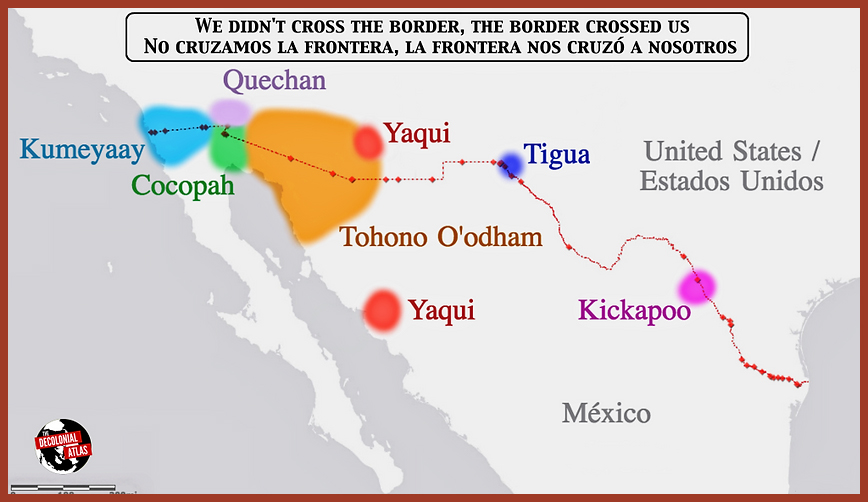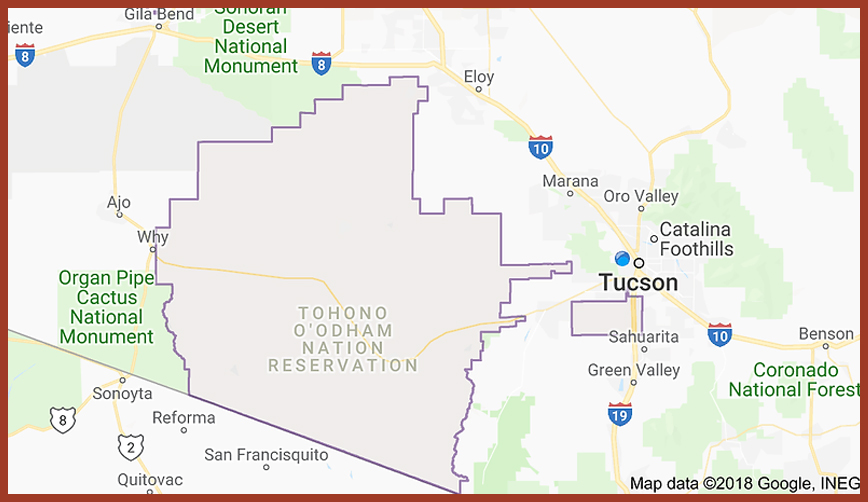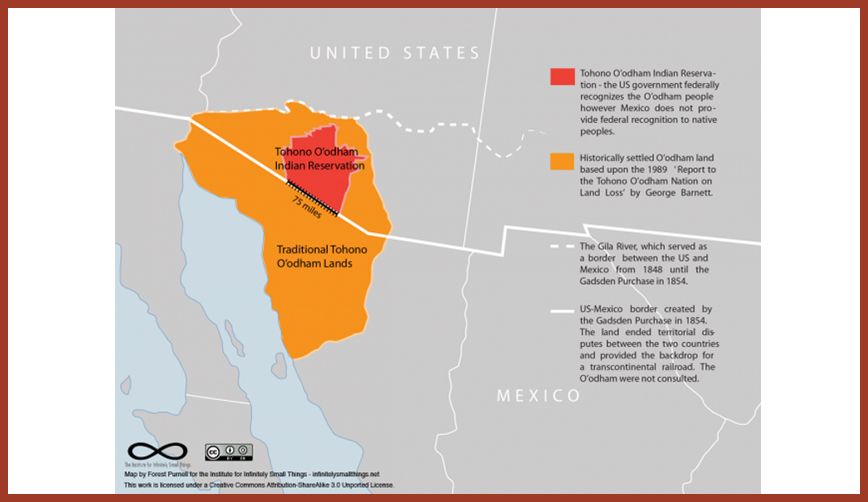The Alianza Indígena Sin Fronteras is situated on the unceded territories of the Tohono O’odham nation. The Alianza Indígena Sin Fronteras acknowledges the 22 Native nations as well as unrecognized peoples that are the original peoples of what we call Arizona today. We further acknowledge the 17 Tribal Nations directly impacted by the U.S.-Mexico border. We also recognize the interconnectedness of land, people, the environment, water, animals and plant life, and the rocks and mountains. They are our relatives and elders and we recognize their rights and peoplehood. Without them, we would not exist.
Indigenous rights at the US-Mexico border are supported by statements in the UN Declaration on the Rights of Indigenous Peoples (UNDRIP). Specifically, Indigenous peoples have the right to live in a territory of demilitarization, peace and safety in their lands; to life, physical and mental integrity, liberty and security of person; the right to maintain, protect, and have access in privacy to their religious and cultural sites; the right to the use and control of their ceremonial objects; to maintain and strengthen their distinctive spiritual relationship with their traditionally owned or otherwise occupied and used lands, territories, waters, and coastal seas; Indigenous peoples divided by international borders have the right to maintain and develop contacts, relations and cooperation, including activities for spiritual, cultural, political, economic, and social purposes, with their own members as well as other peoples across borders. We have walls impacting sovereign Native lands.
We of the Alianza Indígena Sin Fronteras support the peoples that have been divided and impacted by the two nation states of Mexico and the United States. The uncrossable borders is relatively new. Even though “the line” existed, Indigenous peoples interacted with it in a more peaceful, fluid way. Indigenous peoples have always migrated and moved as part of their development and in response to their context. Migration and the mobility of Indigenous peoples is an ancestral way for many Indigenous peoples within Turtle Island and Abya Yalla. This land is Indigenous land and, yet again, it is experiencing death and destruction. Indigenous people are dying on Indigenous land. Women and children are dying on Indigenous land. Men, women and children are the victims of violence, including sexual violence. The hundreds of remains in the desert represent disrupted spirits and families, who forever will remain separated.
Our Indigenous knowledge derives comes from interconnected unity with all of life. This land and territories are alive and our relatives, the plant nation and the star peoples are watching. There is a greater witness to all of this. We acknowledge that this violence is impacting all of us, including the natural world. Land acknowledgment should be reflected in our daily practices to honor and respect the inherent interconnectedness of life and the internationally protected rights of all Indigenous peoples to have peace and security on these lands.
Created on behalf of the Alianza Indígena Sin Fronteras. Contributors:
Drs. Patrisia Gonzales and Roberto Rodriguez
And AISF Indigenous Rights Advocates:
Rachel Starks
Juan Ortiz
Connie Lira-Saavedra
Millie Pepion
The AISF Indigenous Rights Advocates Project (2018-2020) is funded by the Agnese Nelms Haury Program in Environment and Social Justice.
4/18/19



